Candide or the Ballet of Optimism (Extracts)
Compagnie Divertimenty
(Guillaume Jablonka, Irène Feste, Antonin Pinget)
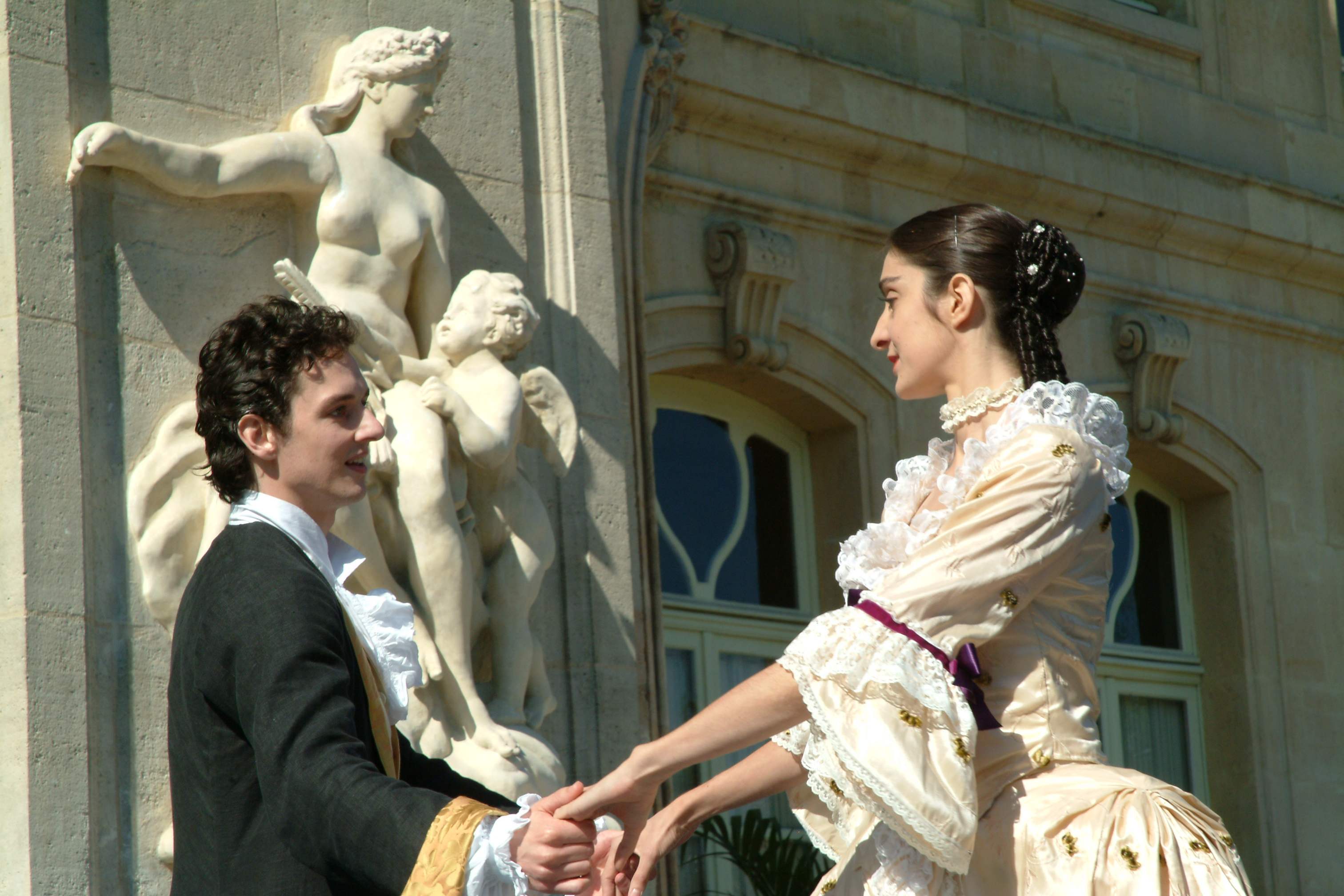 This creation in Dance and Theatre presents the travel story of a young lover where dance embodies the joy of each discovery. Dance does not have the ambition here to tell the story of Candide, nor even to illustrate flatly his adventures, but rather to make sensitive emotions that Candide is going through. It is a complementary dimension to the narrative tale. In the 17th and 18th centuries, the main reasons at the source of dancing on stage are joy and happiness of the exposed situation, a certain form of optimism that some ballet reformers want to challenge in the 18th century. This performance also suggests a return to the repertoire of the dances from the Baroque era which invite us to travel: the Allemande, the Spanish sarabande, the Venetian forlana... Based on Voltaire's work, this philosophical tale with interludes of music and dance builds the occasion for a distantiation from childish rejoicing towards a wise hope and also celebrates in 2026 the 20th anniversary of the company Divertimenty.
This creation in Dance and Theatre presents the travel story of a young lover where dance embodies the joy of each discovery. Dance does not have the ambition here to tell the story of Candide, nor even to illustrate flatly his adventures, but rather to make sensitive emotions that Candide is going through. It is a complementary dimension to the narrative tale. In the 17th and 18th centuries, the main reasons at the source of dancing on stage are joy and happiness of the exposed situation, a certain form of optimism that some ballet reformers want to challenge in the 18th century. This performance also suggests a return to the repertoire of the dances from the Baroque era which invite us to travel: the Allemande, the Spanish sarabande, the Venetian forlana... Based on Voltaire's work, this philosophical tale with interludes of music and dance builds the occasion for a distantiation from childish rejoicing towards a wise hope and also celebrates in 2026 the 20th anniversary of the company Divertimenty.
Guillaume Jablonka, Asnières sur Seine, France
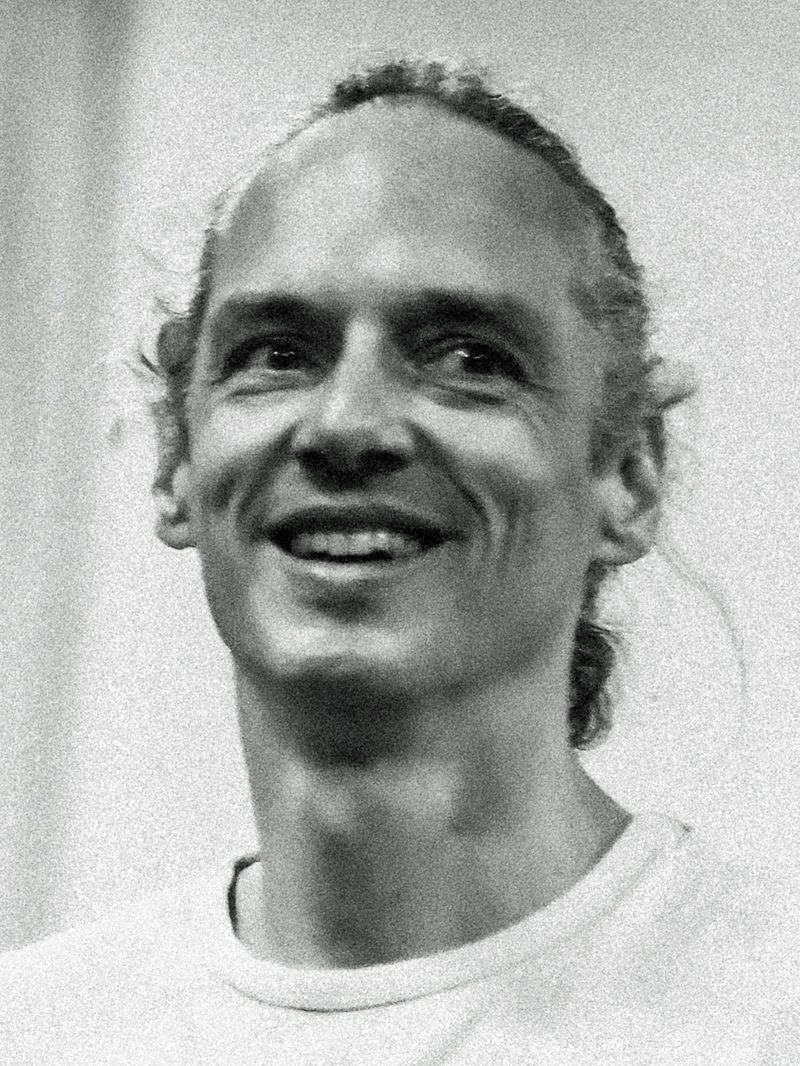 Guillaume Jablonka's career as a dancer took him to the Ballet du Nord (Roubaix), where he met Jean Guizerix and Wilfride Piollet, before incorporating their Barres Flexibles into his training and teaching. He discovered Baroque dance with Marie-Geneviève Massé's Cie l'Éventail and went on to found the Cie Divertimenty, creating Le Petit Chaperon rouge as a pantomime ballet (Festival Baroque de Pontoise) and Les Coulisses du Ballet vénitien (Opéra-Comique). At the same time, his research focuses on the reconstruction of dances notated during the eighteenth century, notably in the Ferrère manuscript. He has benefited from the Centre National de la Danse's Aide à la Recherche et au Patrimoine en Danse scheme in 2011 and 2020. As ballet master, he contributes to the practical application of the sources in performances at the Théâtre Molière Sorbonne.
Guillaume Jablonka's career as a dancer took him to the Ballet du Nord (Roubaix), where he met Jean Guizerix and Wilfride Piollet, before incorporating their Barres Flexibles into his training and teaching. He discovered Baroque dance with Marie-Geneviève Massé's Cie l'Éventail and went on to found the Cie Divertimenty, creating Le Petit Chaperon rouge as a pantomime ballet (Festival Baroque de Pontoise) and Les Coulisses du Ballet vénitien (Opéra-Comique). At the same time, his research focuses on the reconstruction of dances notated during the eighteenth century, notably in the Ferrère manuscript. He has benefited from the Centre National de la Danse's Aide à la Recherche et au Patrimoine en Danse scheme in 2011 and 2020. As ballet master, he contributes to the practical application of the sources in performances at the Théâtre Molière Sorbonne.
Irène Feste, Arcueil, France
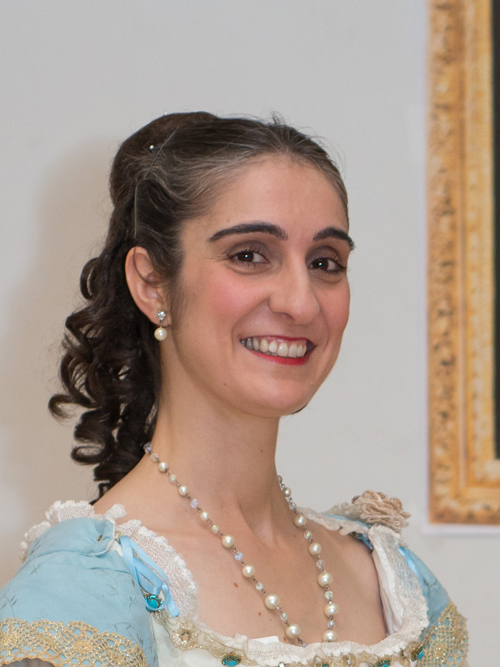 A dancer, choreographer and teacher specialized in early dance from the 16th to the 19th century. She trained in Baroque dance with Christine Bayle and her company L'Eclat des Muses. She has performed with several companies in France and Europe (Danses au (Pas)sé, Les Corps Eloquents, Divertimenty, Doulce Mémoire, Il Ballo...). She has choreographed for the theatre in productions by Pascal Ruiz and for the cinema (Les Trois Mousquetaires by Martin Bourboulon; Le Comte de Monte-Cristo by Alexandre De La Patellière and Matthieu Delaporte).
A dancer, choreographer and teacher specialized in early dance from the 16th to the 19th century. She trained in Baroque dance with Christine Bayle and her company L'Eclat des Muses. She has performed with several companies in France and Europe (Danses au (Pas)sé, Les Corps Eloquents, Divertimenty, Doulce Mémoire, Il Ballo...). She has choreographed for the theatre in productions by Pascal Ruiz and for the cinema (Les Trois Mousquetaires by Martin Bourboulon; Le Comte de Monte-Cristo by Alexandre De La Patellière and Matthieu Delaporte).
Her research focuses on the development of dance in the early 19th century, and has been awarded several research grants from the Centre national de la Danse: on the treatises of Jean-Henri Gourdoux-Daux, the notebooks of Michel Saint-Léon and on the quadrilles of Jean-Etienne Despréaux and his system of choreographic notation, La Terpsichorographie. This research was supported by the Centre National de la Danse, the Institut National d'Histoire de l'Art and the Bibliothèque nationale de France.
Antonin Pinget, Lyon, France
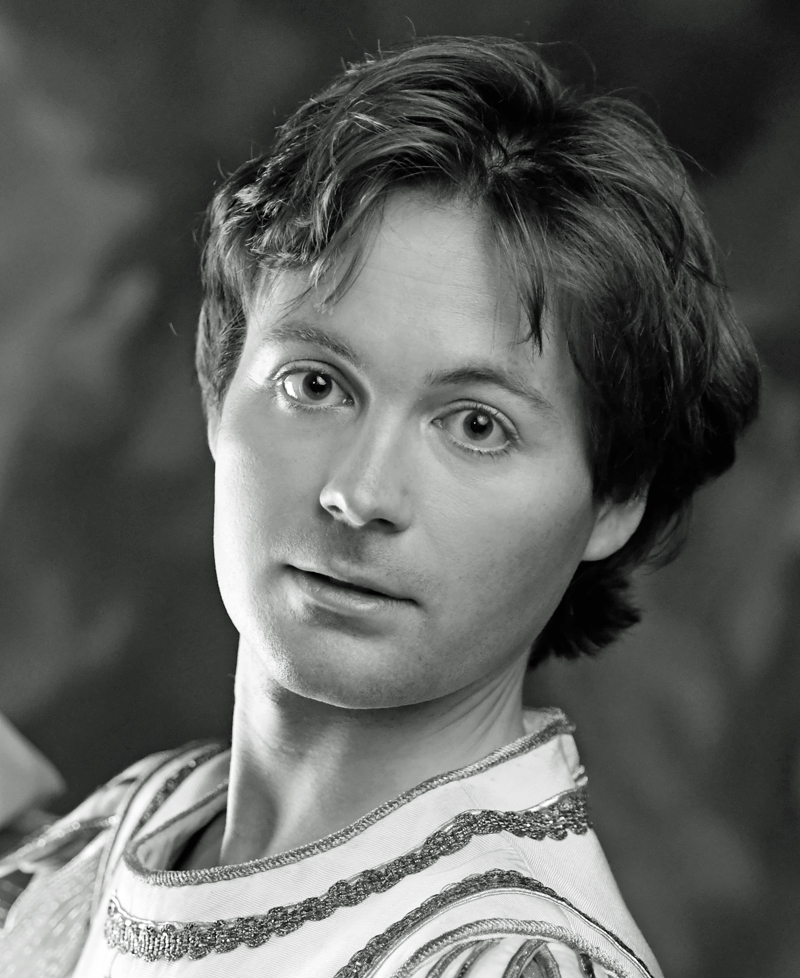 A multi-disciplinary dancer (contemporary, classical, ballroom, folk and tap), Antonin Pinget is a specialist in Early dance. He has worked with various companies (Renaissance, Baroque and 19th century) such as Les Boréades, Outre-mesure, Corpo Barocco, Les Corps Eloquents, HéliosKine, Divertimenty, JMB Compagnie and the Opera Royal of Versailles, as well as with orchestral ensembles such as Doulce Mémoire and Les Arts Florissants. Through his practice and research, he regularly gives masterclasses and workshops for amateurs, musicians and singers, notably at the HEM in Geneva and the CNSMD and CRR in Lyon. He is member of PRO DA (French Federation of Early Dance Professionals) and the CID (International Dance Council).
A multi-disciplinary dancer (contemporary, classical, ballroom, folk and tap), Antonin Pinget is a specialist in Early dance. He has worked with various companies (Renaissance, Baroque and 19th century) such as Les Boréades, Outre-mesure, Corpo Barocco, Les Corps Eloquents, HéliosKine, Divertimenty, JMB Compagnie and the Opera Royal of Versailles, as well as with orchestral ensembles such as Doulce Mémoire and Les Arts Florissants. Through his practice and research, he regularly gives masterclasses and workshops for amateurs, musicians and singers, notably at the HEM in Geneva and the CNSMD and CRR in Lyon. He is member of PRO DA (French Federation of Early Dance Professionals) and the CID (International Dance Council).

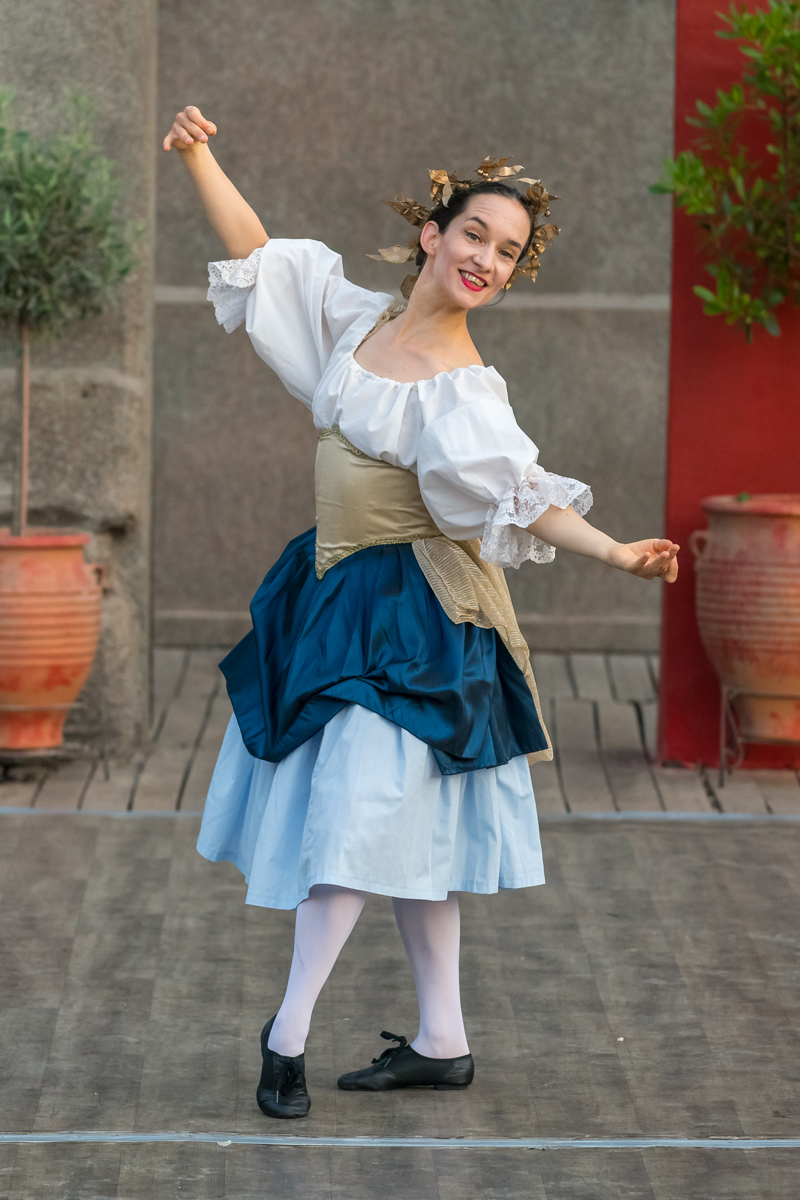 Diese Tanzsuite soll einige technische und choreografische Merkmale aus drei verschiedenen Jahrzehnten der Ballettgeschichte veranschaulichen und damit einige der Kontinuitäten und Veränderungen aufzeigen, die diese Kunstform durchlaufen hat. Als solche soll sie als Ergänzung zu Edmund Fairfax' Vortrag „Ballett im Wandel: 1789–1840” dienen. Der erste Teil präsentiert Choreografien, die drei der vier konventionellen Stile des Balletts des 18. Jahrhunderts (ernst, halb-ernst und komisch) entsprechen, wie sie am Vorabend der Französischen Revolution gepflegt wurden. Sie basieren auf erhaltenen choreografischen Beispielen aus dem 18. Jahrhundert, wie denen im Manuskript von Ferrère aus dem Jahr 1782, sowie auf anderen Textquellen wie Beschreibungen von Tanztechniken, Rezensionen von Aufführungen etc.
Diese Tanzsuite soll einige technische und choreografische Merkmale aus drei verschiedenen Jahrzehnten der Ballettgeschichte veranschaulichen und damit einige der Kontinuitäten und Veränderungen aufzeigen, die diese Kunstform durchlaufen hat. Als solche soll sie als Ergänzung zu Edmund Fairfax' Vortrag „Ballett im Wandel: 1789–1840” dienen. Der erste Teil präsentiert Choreografien, die drei der vier konventionellen Stile des Balletts des 18. Jahrhunderts (ernst, halb-ernst und komisch) entsprechen, wie sie am Vorabend der Französischen Revolution gepflegt wurden. Sie basieren auf erhaltenen choreografischen Beispielen aus dem 18. Jahrhundert, wie denen im Manuskript von Ferrère aus dem Jahr 1782, sowie auf anderen Textquellen wie Beschreibungen von Tanztechniken, Rezensionen von Aufführungen etc.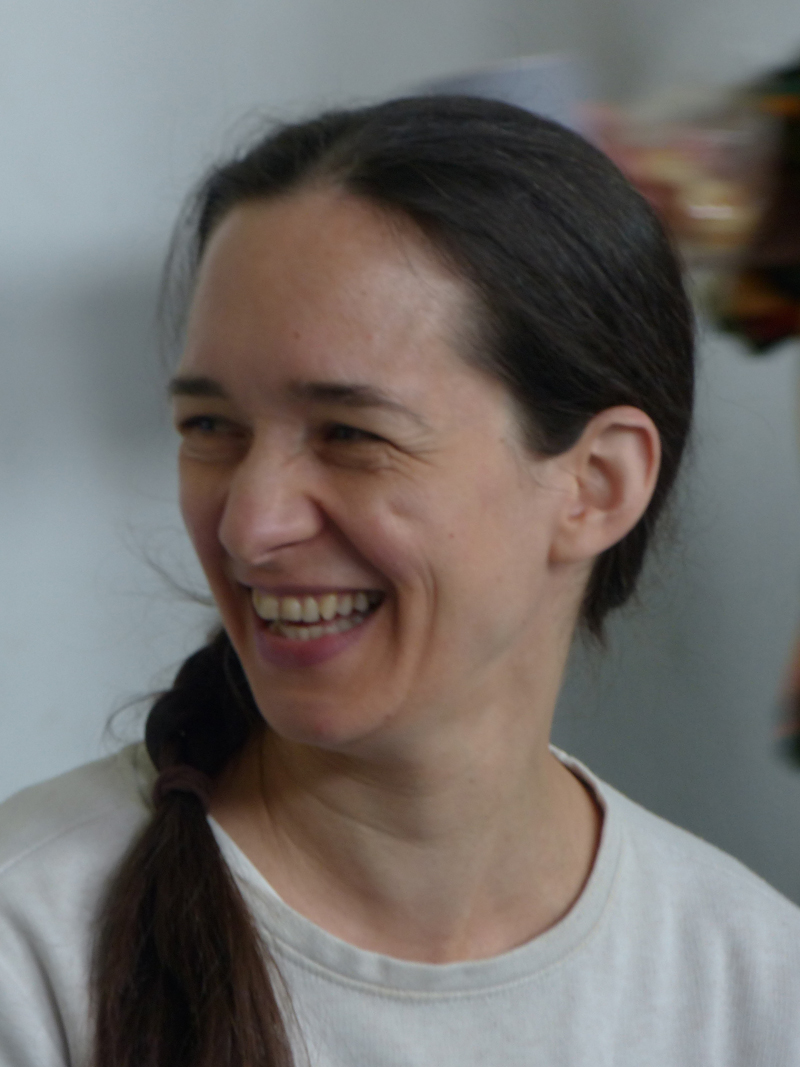 Mojca Gal ist professionelle Violinistin und Tänzerin. Ihre Tanzausbildung umfasst klassisches Ballett in Slowenien, klassischen ägyptischen Tanz und die Cecchetti-Methode bei der ISTD. Seit 2020 arbeitet sie mit dem kanadischen Choreografen Edmund Fairfax an der Rekonstruktion von Balletten aus dem 18. Jahrhundert zusammen. Sie tritt in ganz Europa auf, unter anderem in Zusammenarbeit mit den Potsdamer Festspielen Sanssouci, dem Varaždin Early Music Festival, dem Göttinger Barockorchester, dem Brucknerhaus Linz, Les Passions de l'Ame, dem Ensemble Odyssée, den Innsbrucker Festspielen (letzteres als Mitglied der Tanzkompanie Il corpo barocco) und dem World Dance Congress CID.
Mojca Gal ist professionelle Violinistin und Tänzerin. Ihre Tanzausbildung umfasst klassisches Ballett in Slowenien, klassischen ägyptischen Tanz und die Cecchetti-Methode bei der ISTD. Seit 2020 arbeitet sie mit dem kanadischen Choreografen Edmund Fairfax an der Rekonstruktion von Balletten aus dem 18. Jahrhundert zusammen. Sie tritt in ganz Europa auf, unter anderem in Zusammenarbeit mit den Potsdamer Festspielen Sanssouci, dem Varaždin Early Music Festival, dem Göttinger Barockorchester, dem Brucknerhaus Linz, Les Passions de l'Ame, dem Ensemble Odyssée, den Innsbrucker Festspielen (letzteres als Mitglied der Tanzkompanie Il corpo barocco) und dem World Dance Congress CID.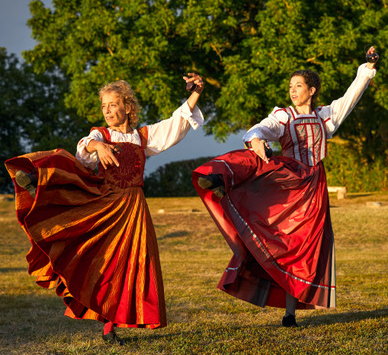 Trajectories invites us to enter into a dialogue between two choreographic universes: Spanish Golden Age Dance and French Baroque Dance. These styles, though distinct, are intertwined through history: the marriages of Louis XIII and Louis XIV to Spanish infantas reinforced the cultural bonds between the two courts, and dance became one of the most vivid expressions of this exchange.
Trajectories invites us to enter into a dialogue between two choreographic universes: Spanish Golden Age Dance and French Baroque Dance. These styles, though distinct, are intertwined through history: the marriages of Louis XIII and Louis XIV to Spanish infantas reinforced the cultural bonds between the two courts, and dance became one of the most vivid expressions of this exchange.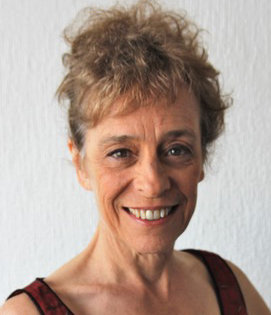 She studied music in Madrid, The Hague and with Nadia Boulanger. She obtained an Early Dance Teacher diploma from the GSMD and a dance certificate from the Sorbonne, Paris. Among other opera productions she has choreographed for Rinaldo, Orlando, Alceste, Giulio Cesare, Ginastera’s Beatrix Cenci, King Arthur, Indes Galantes, Hippolyte et Aricie, Carmen, Massenet’s Manon and Lully’s Bourgeois Gentilhomme. She has collaborated as a dancer and choreographer with Les Arts Florissants, Ris et Danceries, Les Paladins, Elyma Ensemble and the Yepes Trio among others. She works with directors including Francisco Negrin, Alfredo Arias, Jean-Marie Villégier and Mireille Laroche. She has her own company, Donaires Ensemble, which presents baroque dance programs and contemporary dance pieces. She teaches regularly in Europe, South and North America and Japan. She is currently collaborating with with Anna Romaní on the edition of their first book on dance of the Spanish Golden Age: “Introduction to Dance in the Spanish Golden Age, its sources, and its links with French and Italian Dance”.
She studied music in Madrid, The Hague and with Nadia Boulanger. She obtained an Early Dance Teacher diploma from the GSMD and a dance certificate from the Sorbonne, Paris. Among other opera productions she has choreographed for Rinaldo, Orlando, Alceste, Giulio Cesare, Ginastera’s Beatrix Cenci, King Arthur, Indes Galantes, Hippolyte et Aricie, Carmen, Massenet’s Manon and Lully’s Bourgeois Gentilhomme. She has collaborated as a dancer and choreographer with Les Arts Florissants, Ris et Danceries, Les Paladins, Elyma Ensemble and the Yepes Trio among others. She works with directors including Francisco Negrin, Alfredo Arias, Jean-Marie Villégier and Mireille Laroche. She has her own company, Donaires Ensemble, which presents baroque dance programs and contemporary dance pieces. She teaches regularly in Europe, South and North America and Japan. She is currently collaborating with with Anna Romaní on the edition of their first book on dance of the Spanish Golden Age: “Introduction to Dance in the Spanish Golden Age, its sources, and its links with French and Italian Dance”.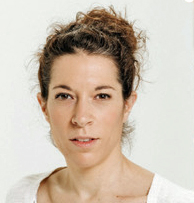 Anna Romaní, born in Barcelona, graduated in Contemporary Dance and Choreography at the Institut del Teatre. She specialises in Renaissance and Baroque dance, having trained with leading international teachers. Since 2005 she has performed with French companies such as Ensemble Donaïres, L’Eventail and Outre Mesure, and collaborated with ensembles including Le Poème Harmonique, Forma Antiqva and Vespres d’Arnadí. She frequently works with the Palau de la Música in projects involving both professional and amateur choirs, as well as family programmes. Alongside her performing career, she has consistently combined artistic practice with research. She co-directs Xuriach, a company dedicated to the study and performance of historical Catalan music and dance. As an educator, she integrates body and music through the Orff approach, and has taught at various conservatories and cultural institutions.
Anna Romaní, born in Barcelona, graduated in Contemporary Dance and Choreography at the Institut del Teatre. She specialises in Renaissance and Baroque dance, having trained with leading international teachers. Since 2005 she has performed with French companies such as Ensemble Donaïres, L’Eventail and Outre Mesure, and collaborated with ensembles including Le Poème Harmonique, Forma Antiqva and Vespres d’Arnadí. She frequently works with the Palau de la Música in projects involving both professional and amateur choirs, as well as family programmes. Alongside her performing career, she has consistently combined artistic practice with research. She co-directs Xuriach, a company dedicated to the study and performance of historical Catalan music and dance. As an educator, she integrates body and music through the Orff approach, and has taught at various conservatories and cultural institutions.